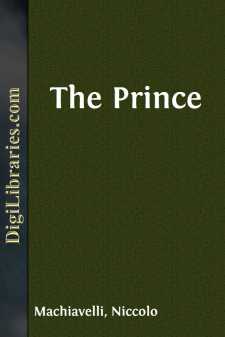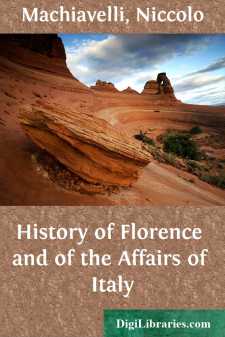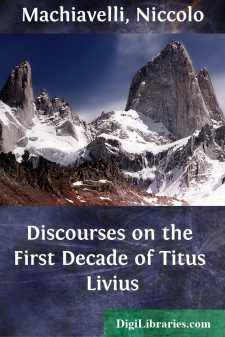Categories
- Antiques & Collectibles 13
- Architecture 36
- Art 48
- Bibles 22
- Biography & Autobiography 813
- Body, Mind & Spirit 142
- Business & Economics 28
- Children's Books 15
- Children's Fiction 12
- Computers 4
- Cooking 94
- Crafts & Hobbies 4
- Drama 346
- Education 46
- Family & Relationships 57
- Fiction 11828
- Games 19
- Gardening 17
- Health & Fitness 34
- History 1377
- House & Home 1
- Humor 147
- Juvenile Fiction 1873
- Juvenile Nonfiction 202
- Language Arts & Disciplines 88
- Law 16
- Literary Collections 686
- Literary Criticism 179
- Mathematics 13
- Medical 41
- Music 40
- Nature 179
- Non-Classifiable 1768
- Performing Arts 7
- Periodicals 1453
- Philosophy 64
- Photography 2
- Poetry 896
- Political Science 203
- Psychology 42
- Reference 154
- Religion 513
- Science 126
- Self-Help 84
- Social Science 81
- Sports & Recreation 34
- Study Aids 3
- Technology & Engineering 59
- Transportation 23
- Travel 463
- True Crime 29
Niccolo Machiavelli
Niccolò Machiavelli (1469–1527) was an Italian diplomat, philosopher, and writer, often regarded as the father of modern political theory. He is best known for his book "The Prince," a pragmatic guide to political leadership that emphasizes power, strategy, and the sometimes harsh realities of ruling. Machiavelli also authored other works like "Discourses on Livy," which explored republican governance. His name has since become synonymous with cunning and ruthless political tactics, giving rise to the term "Machiavellian."
Author's Books:
Sort by:
CHAPTER I — HOW MANY KINDS OF PRINCIPALITIES THERE ARE, AND BY WHAT MEANS THEY ARE ACQUIRED All states, all powers, that have held and hold rule over men have been and are either republics or principalities. Principalities are either hereditary, in which the family has been long established; or they are new. The new are either entirely new, as was Milan to Francesco Sforza, or they are, as it were,...
more...
INTRODUCTION Niccolo Machiavelli, the first great Italian historian, and one of the most eminent political writers of any age or country, was born at Florence, May 3, 1469. He was of an old though not wealthy Tuscan family, his father, who was a jurist, dying when Niccolo was sixteen years old. We know nothing of Machiavelli's youth and little about his studies. He does not seem to have received...
more...
CHAPTER I.—Of the Beginnings of Cities in general, and in particular of that of Rome. No one who reads how the city of Rome had its beginning, who were its founders, and what its ordinances and laws, will marvel that so much excellence was maintained in it through many ages, or that it grew afterwards to be so great an Empire. And, first, as touching its origin, I say, that all cities have been...
more...




